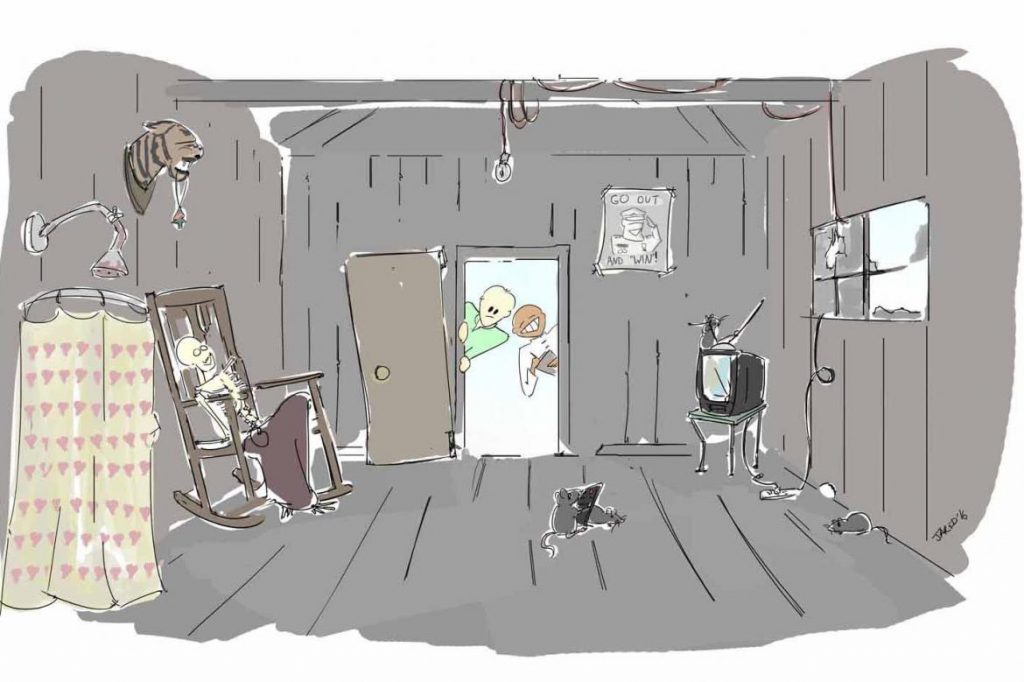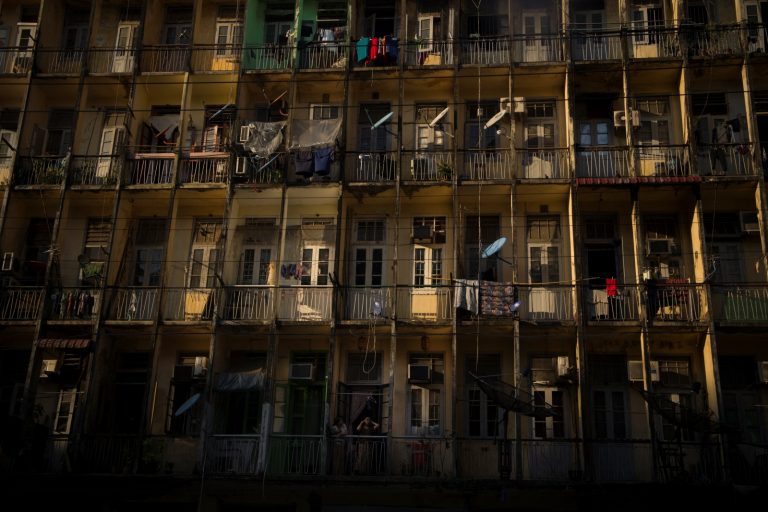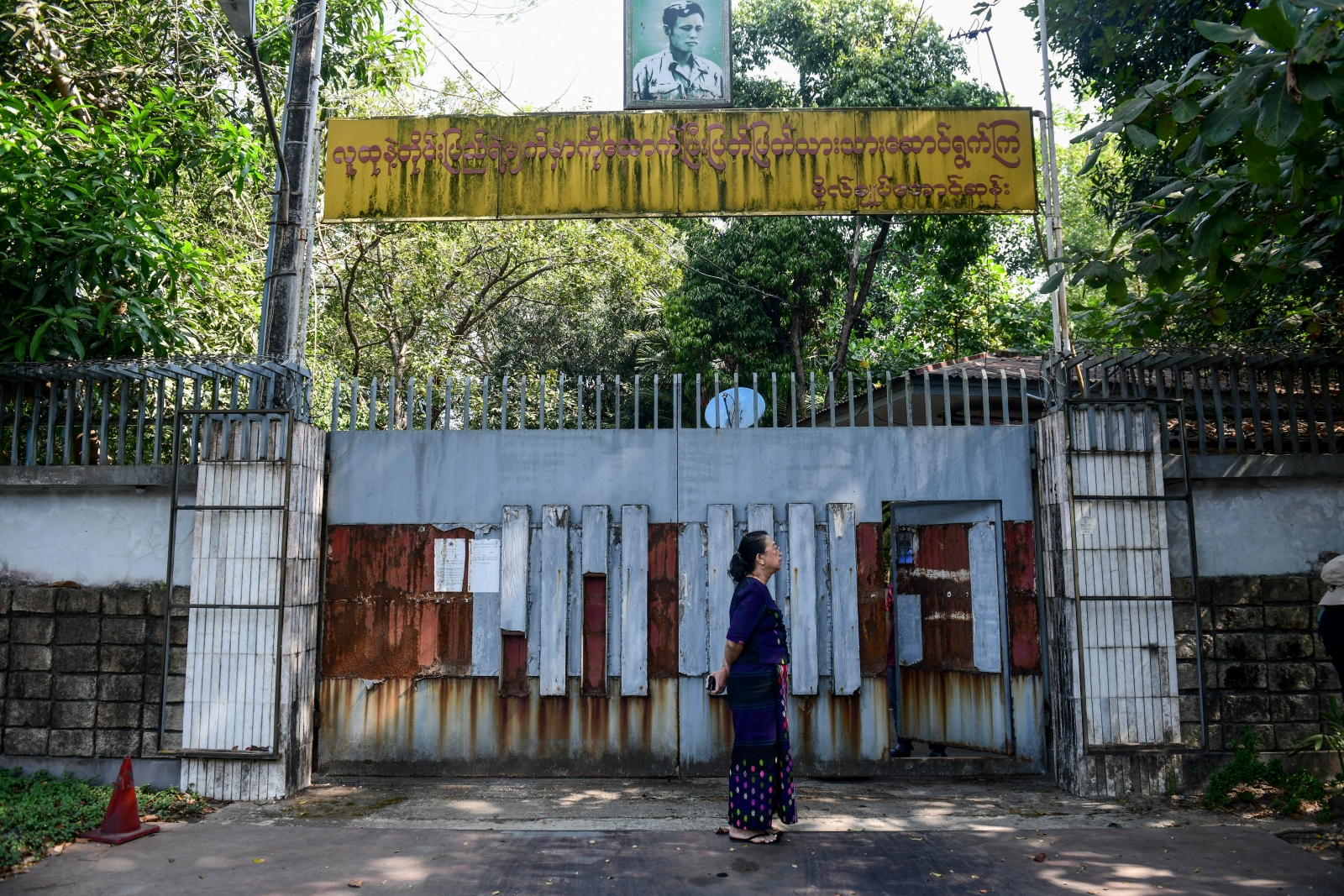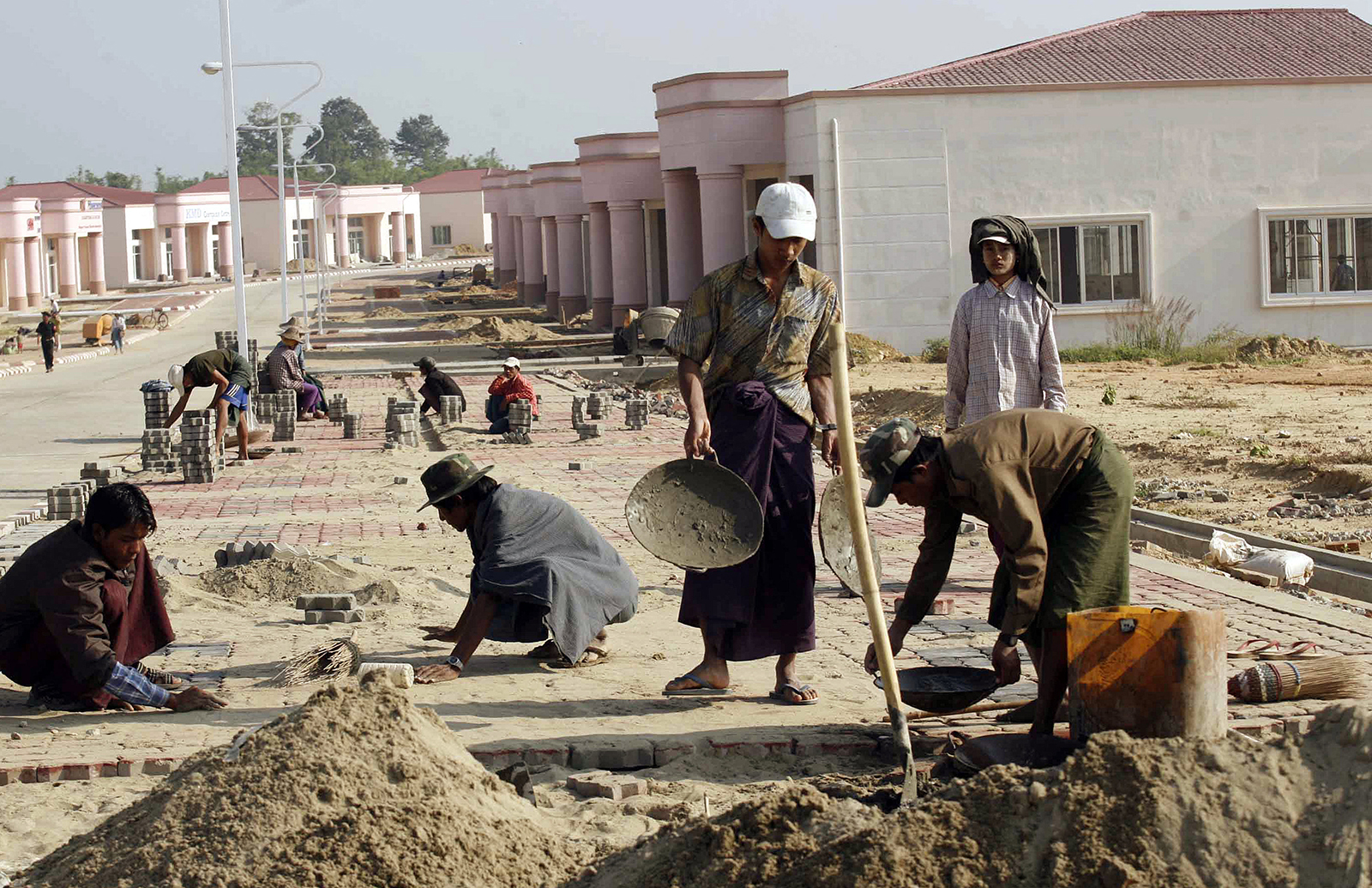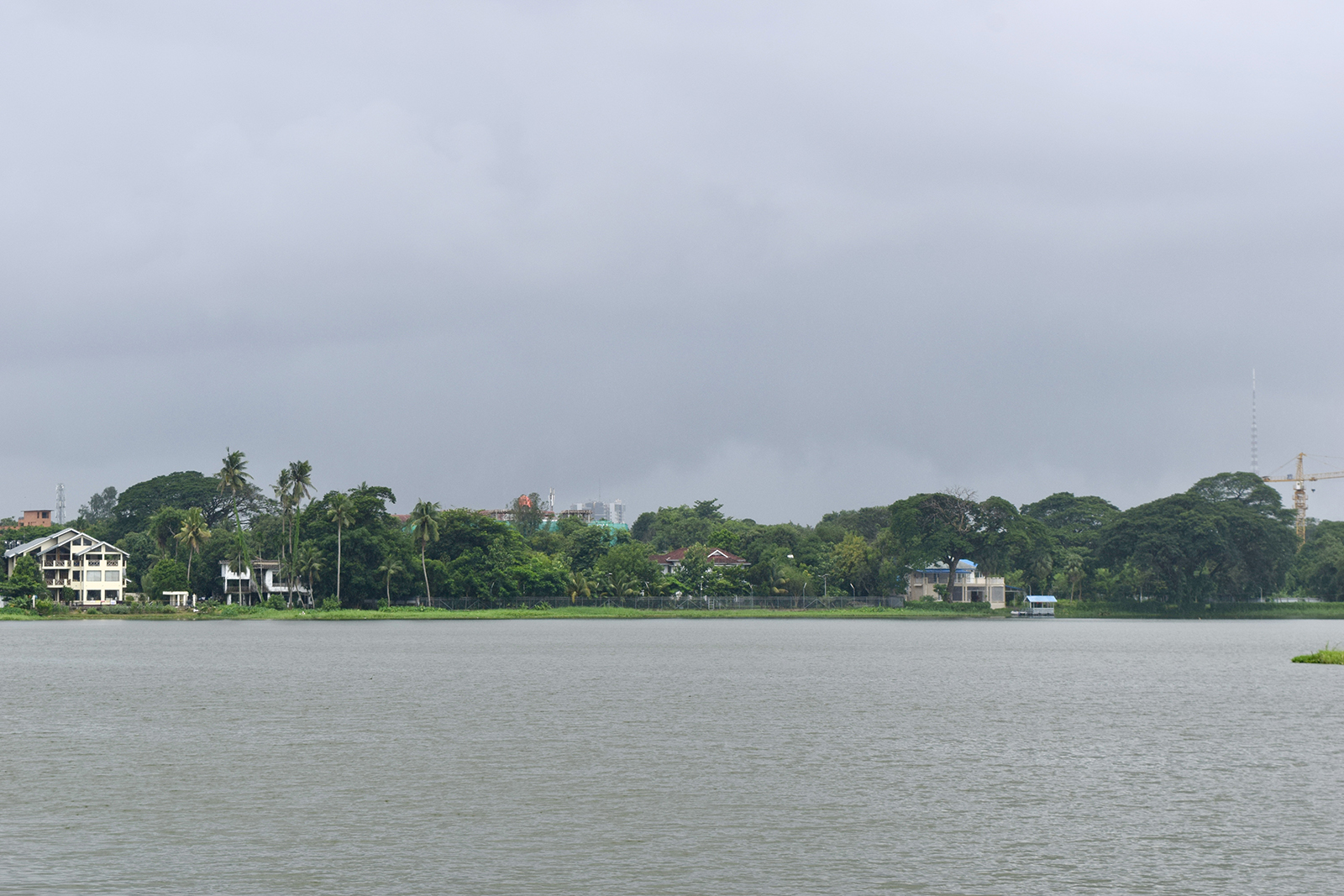Finding housing in Yangon can be a dispiriting task, but the market is beginning to work in tenants’ favour – and our handy tips can help you avoid some basic mistakes.
By OLIVER SLOW | FRONTIER
FOR THOSE going through the arduous task of apartment hunting in Yangon, take some solace from the fact that the entire exercise is a damn sight easier today than it was a few years ago.
Shortly after arriving in Myanmar in 2012, I set out on a hunt to find my own place in the city. My criteria was simple – cheap and clean. But meeting even those basic benchmarks was far harder than I had imagined.
One experience in particular stands out. After weeks of disappointment, an agent assured me that he’d found the perfect place in a quiet lane to the west of Inya Lake.
After weaving through countless alleyways, we finally came to the street in question. At the end stood a dilapidated timber house painted bright purple. One of the windows was smashed and the roof was missing half of its tiles.
Support more independent journalism like this. Sign up to be a Frontier member.
“Very good for you,” insisted the agent. I’m not sure what he thought of me, but it couldn’t have been good.
Reaching the front door, he fiddled with the lock for a few moments before giving up and delivering a swift boot (more specifically, a flip-flop) to force it open.
The house was dingy and there were piles of dust and filth in the corner. On the way to the kitchen, which was stacked high with the previous tenant’s filthy plates, I stepped over three dead cockroaches.
When I opened the bathroom door I was greeted by the stench of stale urine. I tested the shower: the showerhead reluctantly gave up a dribble of brown liquid.
I turned to the agent and asked, just for my own amusement, how much.
“US$1,000 a month.”
I’m pleased to say I didn’t take the place and managed to find somewhere that fitted my criteria.
Luckily the situation has improved in recent years and there are more apartments of a reasonable standard available. As supply gradually catches up with demand, prices are becoming more reasonable.
Still, for those that have to go through the process, Frontier has a few little pointers that might help to avoid — or at least blunt — the inevitable pain.
The official stuff
Any foreigner wanting to rent a property in Myanmar must provide evidence that they have a visa that allows them to live and work here – that means no tourist visas. While this rule has always been in place, township authorities, particularly in Yangon, have enforced it more strictly in recent months.
Once an apartment has been found (we’ll skip the legwork here), there is often a gap between when an agreement is reached between the tenant and landlord and the actual move-in date. In this case, the two parties normally sign a holding deposit contract.
“I usually make these really simple,” said Mr Stuart Deed, director of operations at Myanmar Real Estate. “Person A pays person B ‘X’ amount to secure the property until they take possession, agreeing to pay ‘X’ amount in monthly rent. Both parties sign.”
According to Myanmar law, the holding deposit means that if a tenant decides not to take a property, they lose the holding deposit, while if the landlord cannot make the property available after the agreement is reached, they forfeit twice the value of the deposit.
“Sometimes a holding contract will also have provisions to ensure the landlord undertakes certain promises to buy furniture or goods, or renovate the property in some way. It’s important for any would-be tenant to check that these promises are fulfilled before the full lease is handed over,” said Deed.
Once a contract is signed, tenants are advised to read it carefully a number of times. Deed advises paying particularly close attention to numbers and dates. Contracts can be in Myanmar, English or sometimes both – but regardless, make sure you understand exactly what you’re signing.
“If you are moving in on December 3, for example, you will be expected to pay that money, often in cash, on or before that day or risk losing the holding deposit,” he said.
There are many quirks when renting a property in Myanmar. One is the practice of paying six months or one year of rent upfront. However, shorter timeframes are becoming increasingly common as competition for tenants increases. Having a good rapport with your landlord will also help.
Once a contract has been signed, tenants should take it to the township Internal Revenue Department office and pay stamp duty, which is 1.5 percent of the value of the lease.
“This makes the lease official and, should any disputes arise, it can then be brought before a court,” said Deed.
It might seem an obvious piece of advice, but don’t lose your contract either. Keep it somewhere safe and make hard and soft copies.
The unofficial stuff
Almost as important as the formal aspects of renting in Myanmar are the little tricks that should be considered when apartment/house hunting.
Power is an important one. While power cuts are common across Yangon, supply varies not only from township to township but also from ward to ward and even building to building. Before moving in, it’s a good idea to speak to friends living in the area to find out how serious the problem is.
Even if the power comes, it might still cause you headaches – for example, if the voltage is low. Having lived through one of Yangon’s sweltering hot seasons in an apartment that had low voltage, I can speak first hand of the importance of bearing this in mind before moving into an area.
“You should consider how far away the transformer box is. Close is good, far is less so. The stability of the voltage feeding into your unit basically depends on your proximity to a transformer,” said Deed. “You can also check this in the apartment by switching on an air-con surge protector box and keeping an eye on it while you walk around.”
Fluctuating power leads to air-conditioners flicking off and on. This can make hot season very uncomfortable (as I learned the hard way) but it can also damage electrical goods and blow light bulbs on a regular basis.
One potential solution is to buy a step-up transformer that will regulate the voltage (and increase it if necessary). These don’t come cheap – expect to pay at least K500,000 – and they should only be installed by an electrician.
Water supply also varies markedly across the city. Every house or apartment will have its own pump and tank, and some will have another pump attached to the tank to improve the pressure. The tank will have an overflow to take away the excess water if the pump continues running after the tank is full.
There are a lot of things that can go wrong in this type of setup, so water systems need to be treated with care, if not respect. It’s easy to leave your water pump on all day, burning out the motor or even flooding your apartment. One hot tip: if you’re pumping water in the morning, hang your keys near the pump – a helpful reminder to turn it off before you leave, particularly if the power goes out.
Before moving into the apartment, make sure that the landlord shows you clearly how all electrical and water systems work. I’ve had enough shower-less mornings, brought on by my own ignorance of water systems, to know how important this bit of advice is.
Pests are another charming aspect of life in Myanmar. Cockroaches, mice, ants and even termites are a regular annoyance for Yangonites. A colleague even had a 4-inch-long scorpion living in his bathroom drain for a few weeks, poking its claws through the plug hole and making showering a delicate act.
There are pest control companies around town that can help, but there are also some obvious steps you can take to minimise infestations. For cockroaches, the best way to keep them at bay is to regularly clean your apartment and put mesh grilles over drain holes.
And one final point: noise.
Deed advises visiting the apartment both day and night because “what might be quiet at one time, might be noisy at another. Do yourself a favour and walk around the block too, looking for schools and dhammaryone [Buddhist community halls].”
Monasteries can be noisy, with sermons being played late into the night. There’s not much to be done in this situation – as recent events in Mandalay have shown, any rash response is not going to end well.
Whatever the problems – and there will be problems – just make sure you find time now and again to remind yourself that you live in a fascinating, if at times frustrating, city.
This article originally appeared in Property Insight, a Frontier special report on the Myanmar property market, on December 15. Top illustration: Jared Downing / Frontier


